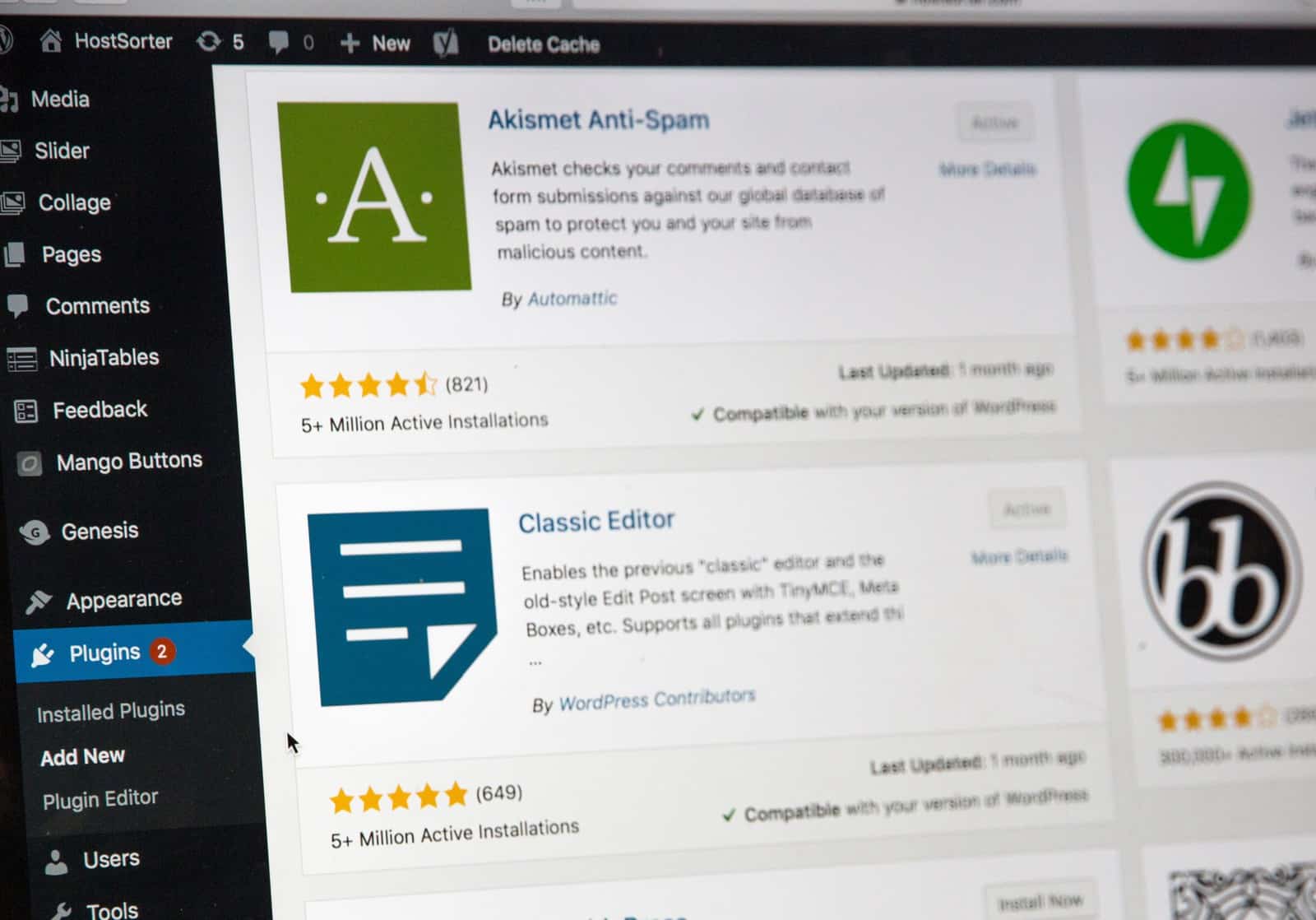Creating and distributing content is one hell of a job that a few of us are capable of doing. It takes a lot of time and patience to hit the sweet spot and get the product you are dying to achieve because when you fall in love with the profession, there is no going back.
It’s a fact that WordPress is by far the best content management system, and if you want to make it, you need to discover the magic it has crafted.
Let’s get serious now, because what if I told you that you are making tons of mistakes that can be corrected in minutes and make your user experience much more appealing and wipe away your worries so you can settle your focus only on the magnificent sentences that are about to be converted from your thoughts to paper? Learning is an everyday process, and when it comes to WordPress, I’m sure that there are very few people that can say that they know everything about it, and I’m also pretty sure that you are not one of them.
Don’t worry, neither am I, but if maturity taught me anything is that you need to accept the fact that there is always room for more knowledge, and that no matter how much you know, you will somehow always be able to mess something up. That is just a part of our human nature – we make errors and repairing them is a part of the process. It may not be the most fun part, but when you get it all stitched and sorted and observe the perfection you’ve created, the sensation of fulfillment will be indescribable with words.
Now it’s time to sit down and confront yourself about a very important part of your business life. How many mistakes did you make, and are you willing to fix them? Are you concerned that you are making mistakes but don’t know where to start? Well, fear no more, because we bring you the seven most common WordPress errors and how to fix them:
1. How do I know if I overdid it with plugins?
When you have a choice of about 25,000 plugins on WordPress alone, it can be a tough choice to decide which ones you need. You start analyzing, reading the descriptions and testing them out, and come to a conclusion – I need them all! I’m sorry to disappoint you, but not all of them are necessary to your particular needs, and you have to pick carefully because if you don’t, there are quite a few things that can go wrong.

What do you do when entering a site that is slow, unresponsive, and laggy? Do you keep patiently waiting for it to load in the hope of finding the info you’re looking for or simply click away and find a different site that will provide the info immediately? I think we both know the answer to that one. And if you are a huge fan of plugins and stack them passionately, this problem that will repel your audience in a blink of an eye can happen to you as well. Too many of them will slow your site down and will become a nightmare to navigate.
If there are too many of them, plugins can interfere with each other and cause mass confusion in your unit. One of them might need to use a resource that another one is using already, or one resource can get overused, and those factors make up perfect soil for errors and bugs. First, you need to resist the urge to download every possible plugin by being analytical and concise. Take a look at the rating of the plugin and read the reviews, look into the version and does it apply to your WordPress version, and most importantly, will it get the job done the way you want it to.
If the answer is no, skip to the next one because you will find what you seek sooner or later. Make sure that you’ve deactivated all of the plugins that you aren’t using and give room and power for the necessary ones. And an important tip to be on the safe side – don’t be lazy to perform a backup when adding plugins because you never know when you’ll need it.
2. Is SEO (Search Engine Optimization) really that important?
You’ve got the story, you’ve got the facts, you’ve got it all; but who is there to see it? If you don’t rank good on search engine results, the only traffic you’ll get is organic, and that is so 2015. If you’ve been ignoring SEO, start the new decade right and give this bad boy the attention he craves, and I guarantee that it will be worth your while!

You might think that it takes programmer knowledge and hours of experimenting to get it right, but that’s simply not true, because you can let WordPress do most of the work for you. And how, you may ask? Simple – use the right plugin. Yoast SEO, The SEO Framework, SEO Squirrly are only a few of those who will get the job done with amazing results. Some of them offer speed; some focus on the support, some on management, so be sure to do your homework and investigate which one will suit your website the best.
3. Analytics are only for nerds…right?
WRONG! If you want to improve your business, attract more users, and get better results, you should definitely look under the hood and find your strengths and weak spots. It is highly possible that the clues which were in front of you are leading you down the wrong path. You might think that there are certain types of posts or topics that pique your audience’s interest, but that doesn’t have to be the case.

And why guess when you can have it all served with just a few clicks. Google Analytics can provide you with all of the necessary data which will guarantee your incline. Do you want to know how much time do visitors spend on your website? Or maybe which keywords are the most successful? Do you want to know your audience’s interests? Have insights about the best performing content? You can find all of that and much more if you seek at the right place.
4. Picking a theme is hard. Can I just pick whichever and change it later?
That is a biiig no-no. Picking a theme is one of the most beautiful things in the development of your website. It determines your character and personality, it makes a statement, and most importantly, it gives an immediate visual representation to any potential visitor. Because of all of those factors, picking the perfect one can be a pickle, especially considering that there are tens of thousands of available themes on the market.
Now, what would happen if you picked one and realized it isn’t as fast as it should be; you try a second one. But that one doesn’t represent your personality; next one. It fits in perfectly, but after using it for a while, you notice that it’s buggy and not well developed. That cycle can last for a while before you hit the jackpot, and when you finally do, you notice it took you way too much time, effort and already did the damage.

You’ve rebuilt your site way too many times, and your users are scratching their heads in confusion, which is leading them towards finding a new favorite blogger. To prevent this from happening, find the one that suits you best and stick to it. Think about its adaptability to the plugins, speed and response time, purchase and download from trusted sites, and, most importantly, fit it into your website’s identity. If customizing and decorating just isn’t a part of your expertise, you can always consult an expert.
5. Should backups be a part of my routine?
I see you have a stunning website. It would be a shame if…it gets completely wrecked by a virus or gets hacked. But the last line of defense always has a trick up its sleeve, and in this case, it’s the backup.
A malfunctioning plugin or a theme, a „white screen of death“, a virus, or something else can completely mess up your website, erase the data and basically bring your worst nightmares to life.
Those occurrences can lead to hours of repairing, a deficit of thousands of dollars, or even irreversible damage with data that you can’t recover. All of that happened because you forgot or were too lazy to set up a backup. Things can go wrong at any moment, but if you are prepared, nothing can surprise you. What I want you to do right now is to go to the Tools tab and select ‘’Export’’ – those few seconds can save you a lot of time and money. And if you want to up your game, reach for some of the plugins that can save all of the database, files, and automatically perform backups, such as UpdraftPlus, VaultPress, or WP Database Backup.
6. Are WordPress updates really necessary?
If you want to get hacked easily, slow your page down and encounter multiple bugs and errors, then you should totally ignore the updates. Or if you don’t, you might want to press that update button. It will secure your website and ensure that it will run as smooth and as fast as possible. With updates, new features and improvements are introduced, and you just don’t want to miss out on the party.

A lot of people presume that updates can crash their websites and cause errors, which is not true, but on the contrary, it will improve your website and run it efficiently.
7. Should images be optimized before uploading?
Images are a huge part of your website. Not only do they attract, but they give your visitors a link to the text with an explanation. You are probably familiar with their importance, which can lead you to think that more is merrier, but that’s not the case. You need to find a good ratio between quantity and quality, considering that many images, especially high-resolution ones, can drastically slow your site down.

To keep your website smooth and fast, and to make the user experience as good as it gets, always optimize images before uploading, and with software like Photoshop or GIMP, it shouldn’t ever be a hustle.
Conclusion
There are many elements to constructing a perfect website, and it’s a process that will take a lot of time and effort, but with the tips and tricks that are there to be discovered, it will surely be an exciting adventure. Human error can’t be avoided. You will always mess something up, but that’s the beauty of the process because you will always pick up on new maneuvers and gimmicks that will take you one step closer to your goals. Even if you are a rookie, you don’t have to make rookie mistakes – do your research, prepare for unpleasant surprises, and fight back with new learned solutions.